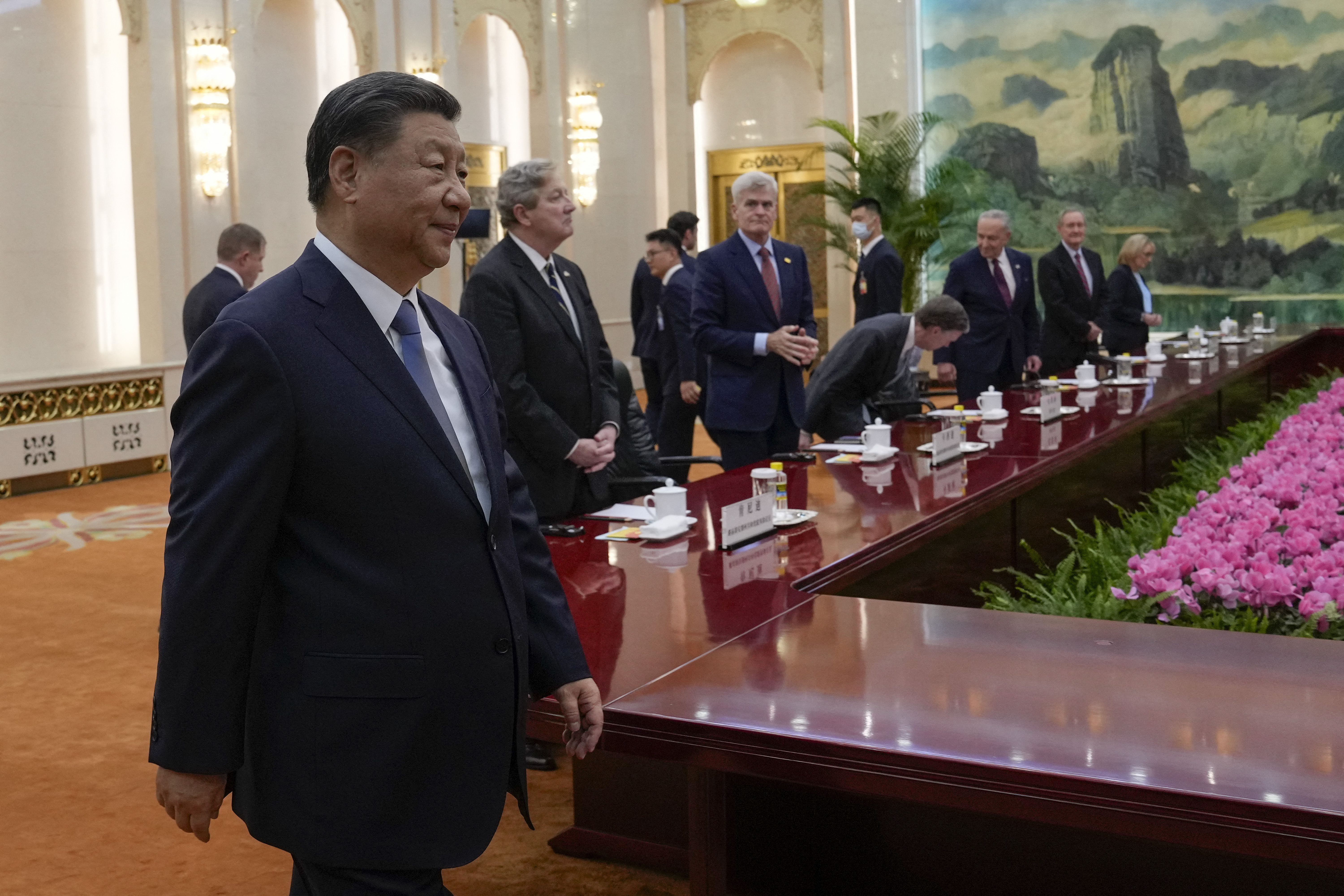As Hamas militants launched a sudden attack across the Gaza border, a group of United States senators were in Beijing. When China’s foreign ministry issued a statement about the attack, it was studiedly neutral, merely calling for “calm” and an immediate ceasefire.
The most senior senator on the trip, the Democrat Senate Majority Leader Chuck Schumer, criticized the statement on social media while still in the country, saying he hoped for stronger condemnation of Hamas.
China has shrugged off the criticism, but it points to a hard reality facing Asian countries that seek to be power brokers in the Middle East – politics hasn’t gone away. Asia’s powerful countries have often looked at America’s influence in the Middle East with envy, and have tried to grab a slice of it. But as the escalating war in Israel demonstrates, there are still hard, unresolved political tensions in the region. And when they explode, it isn’t enough for Asian countries to watch from the sidelines – the countries of the Middle East expect support.
China’s diplomacy is a particularly difficult balancing act, as it has sought to deepen ties with both Israel and the Palestinians. Mahmoud Abbas, the Palestinian president, visited the country in June, with Israel’s Benjamin Netanyahu scheduled to follow later this year.
But the same is also true for India, which has been moving closer to Israel politically under Narendra Modi, but has historically had strong Palestinian ties.
Both countries appear to believe they could “win from afar,” seeking diplomatic gains, while avoiding getting entangled in the intricacies of the Middle East’s wars.
Both are walking a difficult tightrope, trying to avoid being dragged too deeply into a new round of conflicts, while holding on to the political wins they believe they have. But as the war escalates, staying on that tightrope will require a clever balancing act.
China’s diplomacy will be much harder to navigate than India’s, because Beijing has sought to present itself both as the next superpower and as a country whose diplomacy is different to that of the United States. Both present challenges.
If China aspires to be a superpower, it will need to intervene or at least demonstrate it has the ability to shape the political reality for other countries. If it wants to be different to the United States, it will need a more nuanced policy or even one that tips into the Palestinian camp – this at a time when the shocking images of kidnapped Israeli men and women are still circulating.
So far, it has fallen back on studied neutrality. But as the ground war begins, and as it becomes clearer if a Chinese national really is among the hostages taken by Hamas, that neutrality will be harder to maintain. Step too far into the Israeli camp and countries outside the West will wonder whether China has anything different to offer; step too far into the Palestinian camp and Beijing will be criticized for de facto siding with Hamas’s fighters. Neutrality rules out many options.
The whole scenario will be unexpected to Beijing, which was perhaps lulled into a false sense of security by brokering the Saudi-Iran rapprochement at the start of the year. But there, the diplomats were pushing at an open door, as both countries wanted better relations. Israel and Hamas are long-standing enemies, and now at war.
China’s embrace of the Palestinian president in June doesn’t preclude support for Israel, nor condemnation of Hamas, but it means Beijing, rather than loftily issuing calls for peace, will be expected to be involved in the detail of Palestinian and Israeli politics.
And not merely there. Beijing’s search for Middle East allies also led to its embrace last month of Bashar Al Assad, who made a rare trip beyond Syria’s borders.
There again, however, is the reality of getting involved in far-away conflicts. As much as President Xi Jinping offered Assad financial investment and said ties between the two countries had reached “strategic partnership” level, does anyone believe that China would side with Syria if the Gaza war escalated and spilled over?
India, too, may find the strong words of support wavering if, as expected, there is a ground invasion by Israel and the humanitarian toll begins to mount. That may sway public opinion at home and around the world – it may even bring condemnation from the Arab states that host large numbers of Indian workers, complicating Modi’s position.
Beyond the specifics, it highlights the broader issue for countries that have built their foreign policy on the idea that stability is guaranteed in intractable conflicts.
When a new trade corridor was announced at the G20 last month linking Europe to the Gulf states and India, Modi declared that the project would be the “basis of world trade for hundreds of years.” Now it is facing a significant obstacle, within weeks. Because the corridor requires good relations between Saudi Arabia and Israel, something that a long war could jeopardize.
This, then, is the dilemma of the Asian giants. To be a power-broker in the Middle East requires more than handshakes; it sometimes requires getting involved in politics. For China, rivaling America, and for India, rivaling China, expanding their Middle East footprint was meant to be a way of projecting power on the world stage. What neither appears to be ready for is the reality that one day they might need to do more than offer diplomatic words; a long war in the region would force them to confront it. Countries that aspire to be superpowers cannot sit on the sidelines.
Faisal Al Yafai is currently writing a book on the Middle East and is a frequent commentator on international TV news networks. He has worked for news outlets such as The Guardian and the BBC, and reported on the Middle East, Eastern Europe, Asia and Africa. Twitter: @FaisalAlYafai

